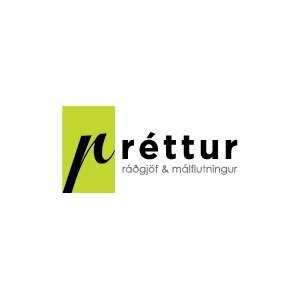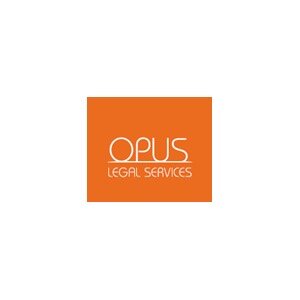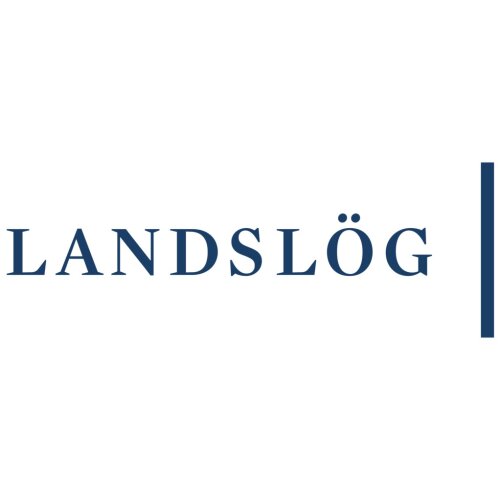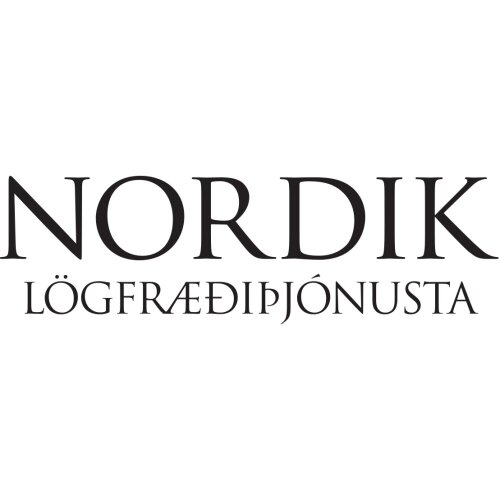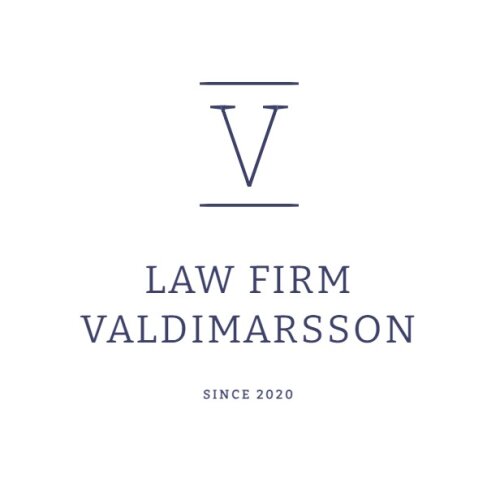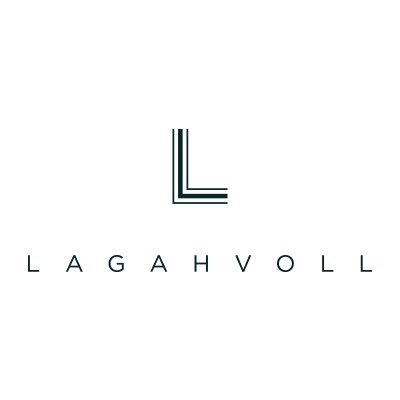Best Restructuring & Insolvency Lawyers in Reykjavik
Share your needs with us, get contacted by law firms.
Free. Takes 2 min.
List of the best lawyers in Reykjavik, Iceland
About Restructuring & Insolvency Law in Reykjavik, Iceland
Restructuring and insolvency law in Reykjavik, Iceland, is designed to provide orderly procedures for businesses and individuals facing financial difficulties. The primary goal is to address issues related to unpaid debts, protect creditors’ rights, and offer potential pathways for companies to continue operations or exit the market with minimal disruption. Iceland's legal system provides a range of solutions, including negotiation with creditors, restructuring agreements, and formal insolvency proceedings such as bankruptcy. These laws are primarily governed by the Act on Bankruptcy etc. No. 21/1991 and its subsequent amendments.
Why You May Need a Lawyer
Navigating restructuring and insolvency matters can be highly complex. Here are some common situations where legal help is advisable:
- Your business in Reykjavik is unable to meet its financial obligations and you are considering restructuring your debts or entering into insolvency proceedings.
- You are a creditor seeking to recover funds from an insolvent debtor.
- You need guidance through legal filings, negotiations, and court procedures.
- You are concerned about the potential personal liability of directors or managers in a failing business.
- You want to explore options for avoiding insolvency, such as voluntary arrangements or restructuring plans.
- You need advice on cross-border insolvency matters if your business has international connections.
Local Laws Overview
In Reykjavik, the fundamental legal framework for restructuring and insolvency is contained in the Act on Bankruptcy etc. No. 21/1991. Key aspects of local law include:
- Commencement of Proceedings: Bankruptcy can be initiated by creditors or debtors through the District Court in Reykjavik. The court will examine whether legal grounds for insolvency exist.
- Moratorium and Restructuring: Debtors may apply for a legal moratorium (payment suspension) to negotiate with creditors while halting enforcement actions. This is often the first step before formal insolvency.
- Creditors' Rights: Creditors must file their claims within strict timeframes and may participate in creditor meetings for decision-making purposes.
- Asset Distribution: Assets are distributed in a specific order of priority as specified by law. Secured creditors usually receive priority over unsecured creditors.
- Director Liability: Company directors have specific duties to act responsibly if insolvency is approaching. Breaches may trigger personal liability for outstanding debts.
- International Matters: Iceland participates in certain international agreements affecting cross-border insolvency, which can impact proceedings involving foreign creditors or assets.
Frequently Asked Questions
What is the difference between restructuring and insolvency?
Restructuring involves reorganizing a company’s finances or operations to avoid insolvency, whereas insolvency means that a person or company is unable to pay debts as they fall due and may enter formal bankruptcy proceedings.
Who can initiate bankruptcy proceedings in Reykjavik?
Bankruptcy can be initiated by the debtor (either an individual or a company) or by creditors who are owed money and can show that the debtor is insolvent.
What happens to assets during bankruptcy?
Once a bankruptcy order is made, a trustee is appointed to take control of the debtor’s assets. These assets are then liquidated, and the proceeds are used to pay creditors according to the statutory order of priority.
Are directors personally liable for company debts?
Generally, company directors are not personally liable for company debts. However, if they are found to have breached their duties or continued trading while insolvent, they can, in some cases, be held personally responsible.
What are the consequences of bankruptcy for an individual?
Bankruptcy can lead to the sale of the individual’s non-exempt assets, impact credit ratings, and impose certain restrictions on future business activities or employment in specific roles.
How are creditors paid in insolvency?
Creditors are paid according to a strict hierarchy set out by law, with secured creditors and certain statutory claims (such as unpaid wages and taxes) receiving payment before unsecured creditors.
Can a business continue operating during restructuring?
Yes, if a moratorium is granted, the business may continue operating while negotiations with creditors take place, with the aim of reaching a restructuring plan that avoids full insolvency.
How long does the insolvency process take in Reykjavik?
The length of proceedings depends on the complexity of the case, the number of creditors, and disputes that may arise. Simple cases can be concluded in several months, while more complex cases may take longer.
Is it possible to avoid bankruptcy?
Yes, alternatives such as restructuring agreements, voluntary arrangements, and negotiations with creditors can sometimes resolve financial difficulties without resorting to formal bankruptcy proceedings.
Where can I find information about my rights as a creditor or debtor?
Government agencies, legal professionals, and advisory organizations in Iceland provide information and support for both creditors and debtors. See the "Additional Resources" section below for more details.
Additional Resources
If you need more information or assistance, the following resources may be helpful:
- The District Court of Reykjavik - Handles bankruptcy filings and court proceedings.
- The Ministry of Justice - Provides legislative texts and guidance on insolvency laws.
- The Icelandic Bar Association - Offers directories of qualified lawyers specializing in restructuring and insolvency.
- The Financial Supervisory Authority of Iceland - Regulates financial institutions and can provide information relevant to some insolvency cases.
- Business Iceland - Offers support and information for businesses facing financial hardship.
Next Steps
If you are facing financial difficulties or are concerned about insolvency in Reykjavik, it is important to seek professional legal advice as early as possible. Begin by gathering all relevant financial information and documents. Then:
- Contact a qualified lawyer specializing in restructuring and insolvency law for an initial consultation.
- Discuss your situation and explore all available options, including informal negotiations, formal restructuring, or, if necessary, insolvency proceedings.
- Follow your lawyer’s guidance to comply with all legal and procedural requirements.
- Stay informed and proactive throughout the process to protect your rights and interests, whether you are a debtor, creditor, or business owner.
Taking timely action and seeking the right legal support can make a significant difference in achieving the best possible outcome during financial challenges in Reykjavik, Iceland.
Lawzana helps you find the best lawyers and law firms in Reykjavik through a curated and pre-screened list of qualified legal professionals. Our platform offers rankings and detailed profiles of attorneys and law firms, allowing you to compare based on practice areas, including Restructuring & Insolvency, experience, and client feedback.
Each profile includes a description of the firm's areas of practice, client reviews, team members and partners, year of establishment, spoken languages, office locations, contact information, social media presence, and any published articles or resources. Most firms on our platform speak English and are experienced in both local and international legal matters.
Get a quote from top-rated law firms in Reykjavik, Iceland — quickly, securely, and without unnecessary hassle.
Disclaimer:
The information provided on this page is for general informational purposes only and does not constitute legal advice. While we strive to ensure the accuracy and relevance of the content, legal information may change over time, and interpretations of the law can vary. You should always consult with a qualified legal professional for advice specific to your situation.
We disclaim all liability for actions taken or not taken based on the content of this page. If you believe any information is incorrect or outdated, please contact us, and we will review and update it where appropriate.




